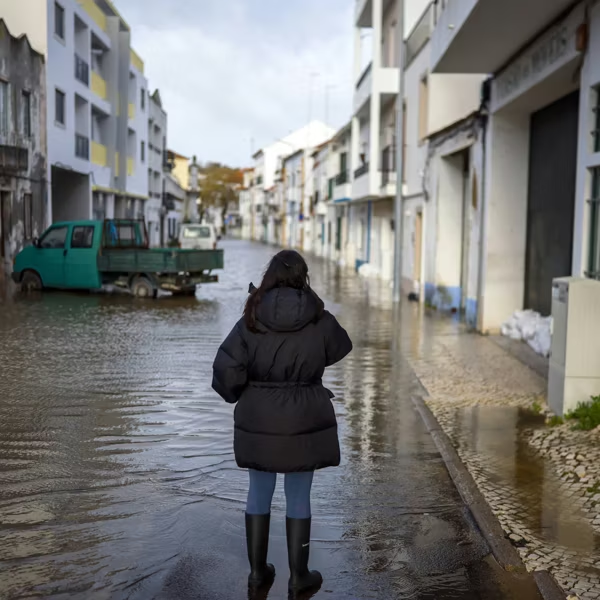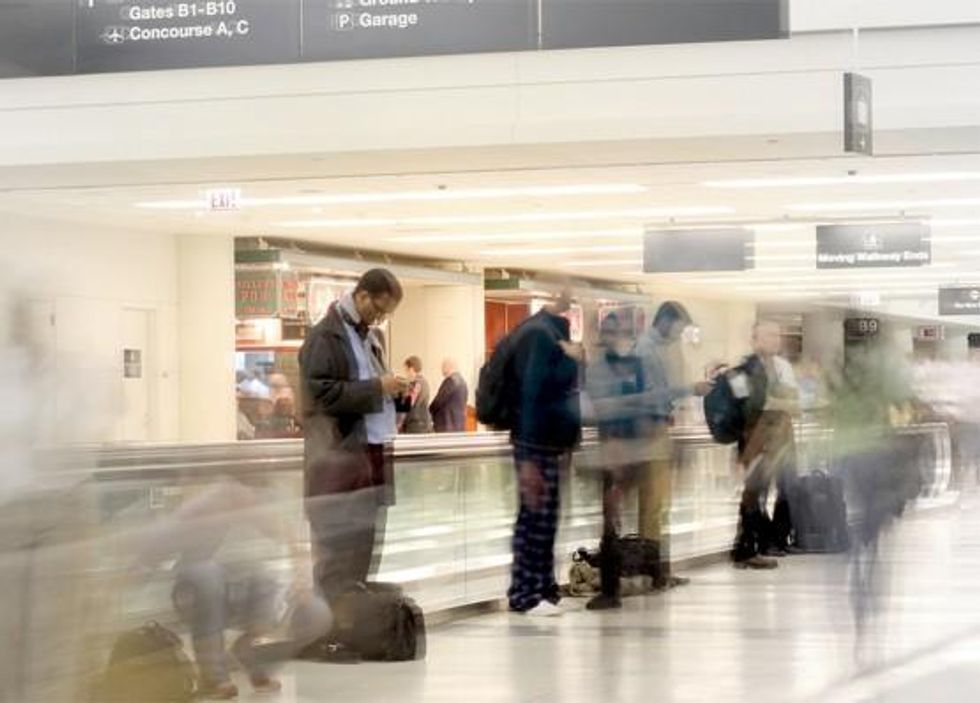After I finished high school in the flat, square corn country of central Illinois, I fled--along with many of my fellow classmates. We chased jobs or graduate school in places like San Francisco, New York, or Washington, D.C. I settled in Seattle. It wasn't until I hit my 30s that I became aware of the social costs of this mobility.
Sense of place, community, and rootedness aren't just poetic ideas. They are survival mechanisms.
It's about more than mere hand-wringing over the ton of carbon I am dumping into the atmosphere this Christmas as I fly east or the psychic toll of separation from my parents, my brother, and my four-year-old niece. I am somehow ungrounded. I have limited history in this gray and watery city: Even after 10 years I don't have the same sense of belonging as people who grew up here, and that sometimes feels disquieting.
According to recent environmental research, this could also mean that I am less equipped to cope--if, say, an emergency strikes--than someone who's better connected to Seattle. Sense of place, community, and rootedness aren't just poetic ideas. They are survival mechanisms.
Social scientists call it "place attachment": "the bonding that occurs between individuals and their meaningful environments," according to psychologists Leila Scannell and Robert Gifford. Based on several studies released in the last couple of years, place attachment is one of several factors that can help a community recover from, and individuals cope with, the kinds of social and environmental crises that are becoming ever more common--like climate change-related disasters, large-scale job layoffs, or political turmoil.
In two separate studies, for instance, individuals who reported higher levels of concern about place were more likely to take steps to prepare for wildfires (in the United States) or floods (in a monsoon-prone region of India). The damage caused by a disaster can be more stressful for individuals who were attached to that place, but those feelings can also motivate people to put the broken place back together, according to a recent book by social workers Michael John Zakour and David F. Gillespie.
These findings don't bode well for many Americans, who have never been good at putting down roots. According to the Economist, people in the United States move twice as often as Canadians. "Americans always on the move developed no attachments to place and thus no sense of historical connection with the land," wrote historian David Glassberg in the book Sense of History. Cultural historian William R. Leach blamed, in part, the globalized economy, which has created a "vast landscape of the temporary ... with thousands of floating executives and countless numbers of part-time and temporary workers, all unable or unwilling to make long-term connections to their communities."
Some of the factors that lead us to move are self-reinforcing: The more frequently young professionals depart the struggling Rust Belt cities and farm towns of the Midwest, the less capacity is left in those places to build new kinds of economies that would entice workers to stay. However, the highest number of moves happens below the poverty line, among people whose lives, relationships, and finances are rarely stable: Those moves exact different social costs, as kids from poor families bounce from one school to another and miss out on forming relationships in one neighborhood.
But in the last couple of years, Americans have begun to change their itinerant ways. Since the mid-1980s, an ever-smaller percentage of people are changing locations. The number of Americans who relocated hit an all-time low in 2011, though relocation went up slightly the following year. More significantly, today's 20-somethings (historically one of the most mobile age brackets) are less often moving out of the family house. A record number of those under the age of 31 still live with their parents, says a report from Pew Research.
some communities might endure precisely because people have dug in, rooted themselves
The fact that Americans are now more geographically anchored may or may not be a positive sign for the economy in the traditional sense. The still-slumped housing market might be keeping some of us glued to one place, and the Brookings Institution's William Frey calls the increasing tendency to be stationary a "foreboding trend for national economic recovery." But of course, that depends on what kind of economy we are trying to create.
And some of the unintended consequences of staying put may be positive. More than 80 percent of people living in multigenerational households (such as ones where young adults stay with parents and grandparents) say the situation has "enhanced ... relationships among family members."
To stay put requires that you keep your relationship to one place, whether by default or choice. It can mean restitching the social fabric of families. It can mean forgetting any shame associated with lingering in or contributing to the town you grew up in.
This is not to say that Americans will soon stop traveling over the holidays. (Or that I'll ever be able to settle my whole family in one location--in just a few years, my mother's household has moved from New England to the Plains and back to the central Midwest, and my husband's brother, from the Midwest to South America to Kentucky.)
The most foreboding trends now and in the decades ahead may stem from climate change--disasters like drought and flooding that devastate some places and force people to move. As we face this kind of world, some communities might endure precisely because people have dug in, rooted themselves, and developed the kinds of generosity, adaptiveness, and foresight that come from knowing where they are.
This article was written for YES! Magazine, a national, nonprofit media organization that fuses powerful ideas with practical actions.




